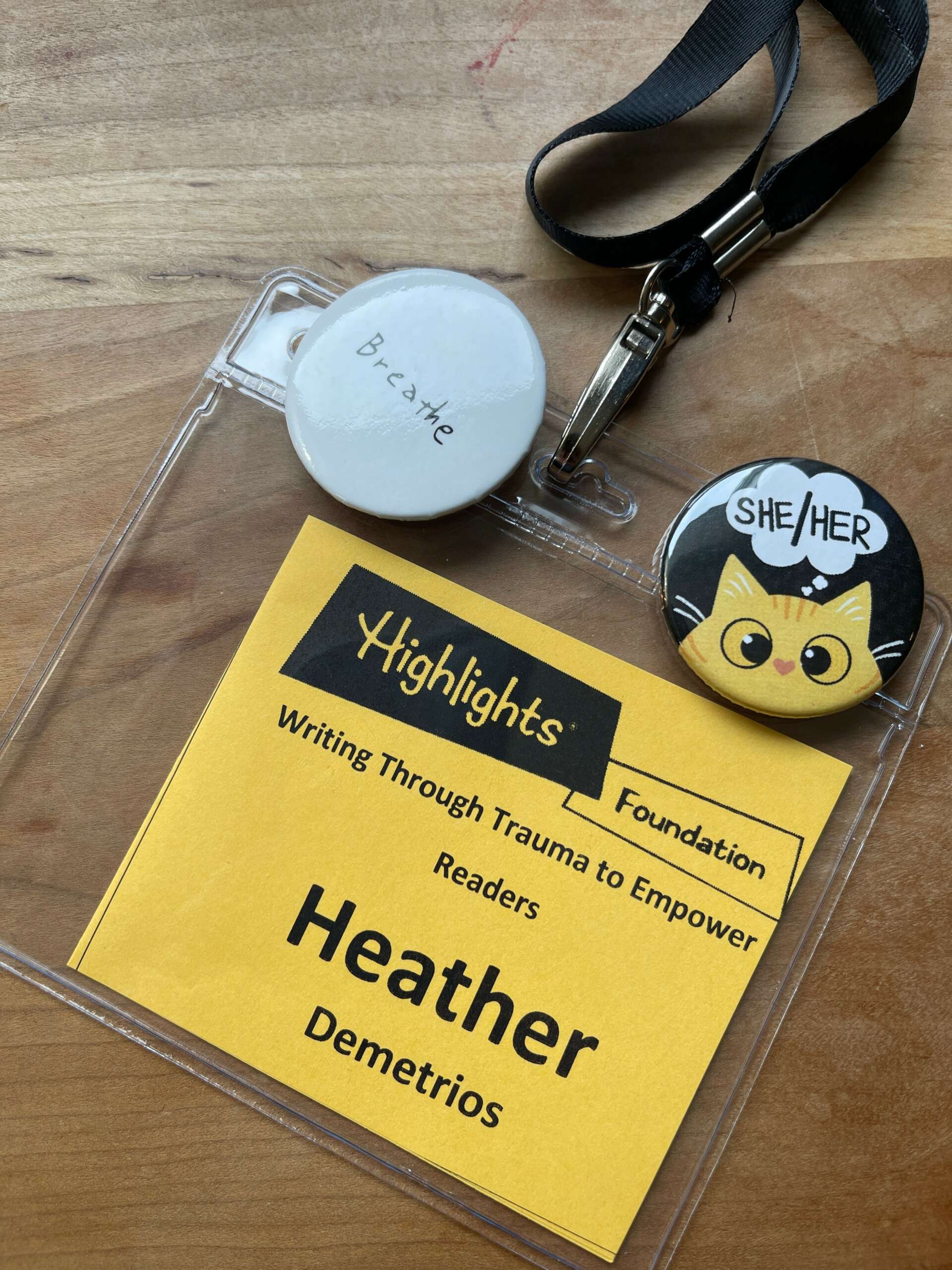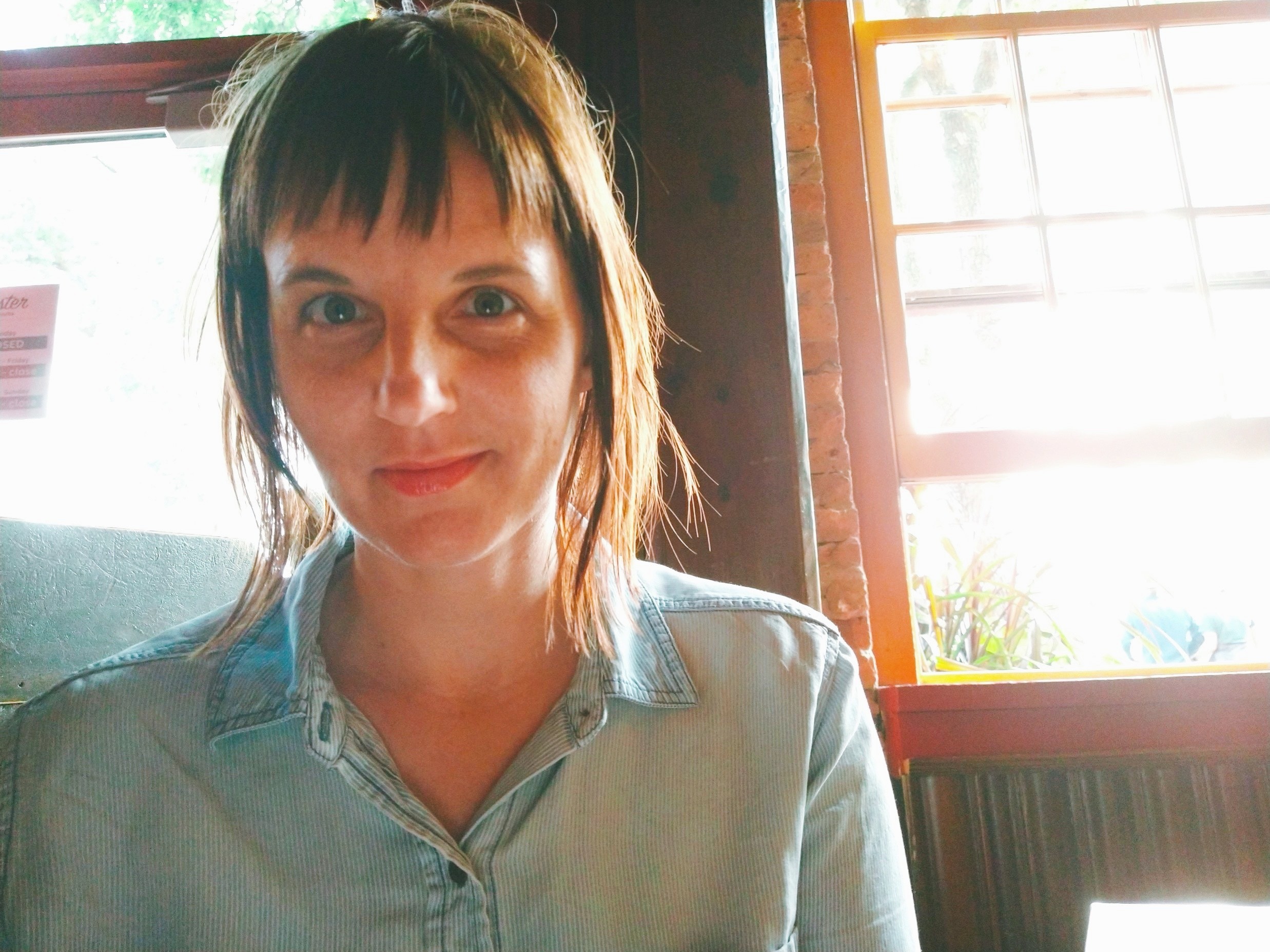We recently connected with Heather Demetrios and have shared our conversation below.
Heather, thanks for joining us, excited to have you contributing your stories and insights. Let’s jump right into how you came up with the idea?
There are a lot of people out there who are book doctors, do editorial services, or otherwise coach writers – but there aren’t any I have found who offer the holistic approach I always wanted for myself as a writer, and if there were people who were moving into a more holistic approach, they didn’t have the street cred and experience to back it up. I started my business as a free Facebook group for writers where we looked at the ups and downs of the writing life and I provided tools on how to navigate the challenges of rejection, procrastination, feeling stuck, lacking support, the inner critic, and more. And yes, of course, story and craft support! This quickly evolved to paid 1:1 clients, group coaching, retreats, workshops, and more.
My coaching business has always been about both the process and practice of writing, as well as offering mentorship around publishing, the creative life, and the intersection of writing and mindfulness. Along the way, it became clear that what writers were writing about was often their own trauma, or at least areas of their life that are sticky for them. They’re trying to untangle something. OR, the actual act of writing the book – giving themselves permission to take the time for themselves, to follow a dream, to stop battling and learn to BEFRIEND their inner critic…this becomes so much more than writing a book. It’s a journey of healing and self-discovery, but through the act of working on a whole project.
I had this experience myself as a writer, so in starting my business I knew I wanted writers to see writing as a spiritual act, as an act of empowerment, and as a way of showing up for their lives fully. Incorporating my work as a mindfulness teacher has been, from the start, a big part of that. I call that “Mindfulness for Writers.”



Awesome – so before we get into the rest of our questions, can you briefly introduce yourself to our readers.
One of the things I think is so important when I hire professionals is that they actually have the experience and training to back up what they say. There are so many so-called coaches out there who don’t have the experience that the people they work with are looking for mentorship around. I am a multi-published author – fiction and non-fiction – with major publishers. I’ve received a PEN award for my work, as well as numerous other honors. I have an MFA in writing and am a creative writing professor in an MFA program. I also have loads of certifications and experience teaching mindfulness. So when someone comes to me who wants to get published, I actually know what I’m talking about. I’ve figured out how to write books that get six-figure deals, and I’ve coached writers into getting those same kinds of deals.
But I also know how publishing makes writers really depressed, anxious, and heartbroken. I know what it’s like to realize that book deal doesn’t fill the hole inside you. I know how the inner critic can plague you. I also know lots of tools to work with those big feelings, to find your center, and to fall back in love with writing when you start feeling jaded. This is what I bring to the table – having had the experience of the highest highs (big book deals, national tour, awards) and the lowest lows (having a controversial article go viral, having a book deal cancelled, having books go out of print).
On my website, it says: “Build the Writing Life You Long For.” Notice I don’t say “sell your book!” “make 100K a year” or anything else around hustling for one’s worth and thinking that publication is what is actually going to make you a satisfied writer. This is where mindfulness and mental health come in. I’m currently getting my Master’s in Social Work (clinical) to deepen this work I do with writers so that I can support them as much as possible.
What I’m most proud of is seeing writers who are really talented but are holding themselves back due to self-doubt, comparison, etc. go from hiring me when they’re totally at rock bottom to ending their time with me with a fabulous agent and a book deal WHILE ALSO having the tools to work with all the imposter syndrome etc. that will still inevitably come up. I’m proud of writers who aren’t strong in craft coming to me and finishing with great books because they’ve learned how to amplify their strengths and work on areas of growth.
I absolutely love helping writers discover they already have a process and it’s unique and brilliant, and then watching them go from struggling to get to the writer’s seat to feeling empowered when they’re there.
Mostly, it’s a joy to see the healing that takes place and to see writers fall back in love with their writing and find their center.



Let’s talk about resilience next – do you have a story you can share with us?
I wrote an article on Medium called “How To Lose 1/3 of a Million Dollars Without Really Trying” (https://forge.medium.com/how-to-lose-a-third-of-a-million-dollars-without-really-trying-d3c343675aca) and it went viral. It was, hands down, one of the worst experiences of my life.
I’d written the article to highlight the gaslighting in publishing toward authors, the lack of mentorship in the industry, and the ways in which this industry does not give authors clear information about the complex system they’re working in. Authors are often gushed over by their new publishers and it can be disorienting – you think they love the book and fully support it. Then you find out they’re not really marketing it, and so it won’t sell well, and then when you try to sell another book, you might not get a book deal…even if you got starred reviews and awards for your book.
My goal had been to write what’s known as a “humiliation essay”: basically, a “don’t-make-the-mistakes-I-did.” It was my way of turning my lemons into lemonade for others. Many writers thanked me for the article, but it was painful to have my entire industry weighing in on the piece. It was often purposefully misread or taken out of context. It was also just an incredibly overwhelming experience.
However, I didn’t give up or stay silent and, as a result, I saw countless articles come out over the next few years with authors being open about their finances, sharing stories, and being real. Sometimes when you’re the first person to say the hard thing, it doesn’t go well, but it can open doors for others.
As a result of my article, I actually ended up with a new agent who really understood me and I built even more trust with my writers, who know I’m willing to put my reputation on the line for writer mental health (the article also touches on how much the industry’s structure hurts authors).
More than anything, the experience showed me the power of my words and how I can shape my little corner of the world with them.
Can you open up about a time when you had a really close call with the business?
It’s interesting being an author and a coach because I’m often wearing both hats at once when I’m anywhere public – whether that is on a panel or leading a retreat.
In my early days, I was invited to be on a panel at a bookstore with other young adult authors. I wasn’t doing great as far as my mental health: I was feeling a major lack of support from my publisher and it was taking a toll on how I was able to show up for myself. I was bitter and I was freaking out, convinced that I was never going to sell another book again if this one didn’t sell.
So there I was on the panel and I have my first-ever panic attack. First, a dry mouth. No problem, I’ll drink some water – wait, my hands are shaking, I can’t pick up the water bottle. And so on…I somehow made it through the panel, got off stage, and sobbed in the car. I never wanted to do that again. Except…I would be on a very small, intimate panel with a very famous author in a week. So I get to that panel…and everyone is talking about their homes in the Hamptons beforehand and I’m feeling some imposter syndrome.
Then, I look around at the young women who are at the bookstore. The book I was promoting was about dating violence – my novel, Bad Romance. Statistically, I knew that there would be at least one woman there who needed to hear my story (the book is very autobiographical). I decided I wasn’t here for me or the book : I was here for her, whoever she was.
The panel turned out to be one of the best public conversations I’ve ever had. I was so engaged, not self-conscious, and fully invested. From there on out, for my work as a coach, an author, whatever…it’s not about me. It’s about identifying what I need to say for who I’m speaking to. Letting my work and the work I do with others speak for itself.
This is one thing that helps my writers get out of their own way. I tell this story and have them write a writer’s artist statement about why they write, who they write for, and what they hope their words will do in the world. It immediately puts you in a position of power: no publisher can take that away from you. Whenever we’re doing something for the greater good, even if it’s healing ourselves so we do no harm, we’re working from a place of agency and personal authority. It makes all the difference on and off the page.
Contact Info:
- Website: www.heatherdemetrios.com
- Linkedin: https://www.linkedin.com/in/heatherdemetrios/
- Other: Newsletter: https://heatherdemetrios.us10.list-manage.com/subscribe?u=3b6fbf2b3261ae89264c042ff&id=b2a85310d6 Insight Timer: https://insighttimer.com/mindfulnessforwriters
Image Credits
All photos are by me.


